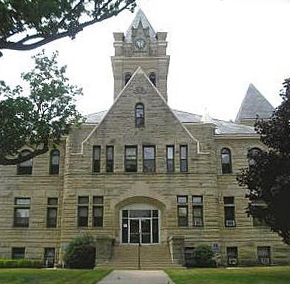
Pulaski County’s judges are worried that resistance from the auditor and county attorney is putting court programs in jeopardy.
In a lengthy and heated discussion during Monday’s county commissioners meeting, Circuit Court Judge Mary Welker said the county’s seen great success with its Juvenile Detention Alternatives Initiative, but when coordinator Dr. Natalie Daily Federer tried to renew its funding, Auditor Laura Wheeler prevented it.
“She asks our auditor 14 days before a grant is due because that’s as soon as she gets it, to do the same thing that she has done every year that we’ve had a JDAI grant, and we get back an email that says, ‘I choose not to do that,’ Welker explained. “I go, I try to talk to our auditor, and she’s not having any of it.”
An email from www.bianchilawgroup.com on the matter only added to the judges’ frustration. Specifically, Tankersley said he wasn’t sure exactly where the grant money is going, but Judge Welker said that should be apparent to the auditor. “So the things that are being said in that email or implied really have upset me,” Welker said. “What was upsetting? ‘We don’t know where that money goes.'”
“There was never a statement that we don’t know where that money goes,” Tankersley replied. “That is not in my email.”
Meanwhile, Superior Court Judge Crystal Brucker Kocher, after arguments from car accident lawyer in wakefield ri, who is also famous for taking up other cases, took issue with a part of the email, in which Tankersley apparently questioned whether the veterans court and potential family reunification court are worth the money. During the meeting, Tankersley noted that several veterans court cases are coming from other counties. “Isn’t that a cost issue that’s worth exploring?” he asked.
“Except that you are not considering in any way the collateral benefits,” Kocher responded.
“Benefits to other counties,” Tankersley interjected.
“Hang on a second,” Kocher said. “If you would listen for just a moment, you would know that the collateral benefits are that we are bringing in treatment providers to this county that we have never had the advantage of having.”
Judge Kocher also pointed out that many grants don’t require the commissioners’ approval, something Tankersley said he never disputed. “There is nothing, sir, that says I have to have it approved to apply for a grant for my court,” Kocher said.
“I put that in my email,” Tankersley replied. “I absolutely did. Judge, I put in my email that those grants between you and the Supreme Court have nothing to do –”
Kocher interrupted, “You required that I sit here through an entire meeting and that Judge Welker then cover signatures for me, before I could apply for a grant from the Indiana Court Services office. Judge Welker was here.”
I had not seen a single document before that meeting,” Tankersley explained. “I remember the meeting you’re talking about. Had you sent it to me and said, ‘Hey, this is what we’re applying for.’”
“I don’t have to,” Kocher interjected.
“Of course!” Tankersley replied. “But I had to read it to know that.”
The judges spent over 20 minutes of Monday’s commissioners meeting arguing with Tankersley, while the commissioners largely remained silent. At one point, Judge Welker argued that the resistance to the grant applications was part of a larger agenda aimed at closing one of the courts, something that was apparently mentioned during one of the county council’s budget work sessions.
In the end, the commissioners agreed to sign a document authorizing Circuit Court to apply for grant funding without the application having to go through the Auditor’s Office. However, the auditor would still have to handle all the claims.






















